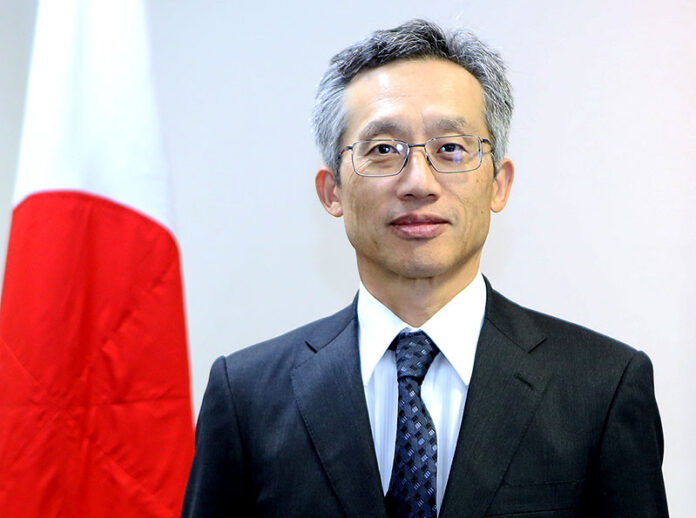Japan relation with the State of Kuwait is exceptional and deeply rooted with the two countries utilizing such a historical bond to boost cooperation in numerous fields, said Japanese Ambassador to Kuwait Morino Yasunari. In an interview with KUNA, Ambassador Yasunari indicated that relations between the two countries dated back prior to the establishment of diplomatic ties in 1961, revealing that Japan had been importing oil from Kuwait since 1958 due to a signed agreement.
Kuwait is the third largest exporter of oil to Japan with a volume of 6.89 million barrels in 2023 for instance, said the Ambassador who noted that commercial exchange was on the increase surpassing levels prior to the COVID-19 pandemic. On the level of financial coordination, Ambassador Yasunari affirmed that Kuwait and Japan were abiding by a 2010 agreement to avoid double taxation, which had an impact on boosting commercial ties.
He noted that in 2013, an agreement on protecting investments was also signed as part of the two nations pursuing of greater investments. Japanese Prime Minister’s recent tour of the Middle East led Japan to sign an agreement with the GCC to resume negotiations over the free-trade zone in light of both Japan and the Gulf countries’ interest in pursuing ventures within energy transformation ensuring a steady supply of oil and gas to the international market. The cooperation will also boost new technologies using ammonium and nitrogen.
Ambassador Yasunari also commented on the importance of the Kuwaiti-Japanese joint symposium held some years ago, which had topics regarding increasing cooperation between the Kuwait Institute for Scientific Research (KISR) and Kuwait National Petroleum Company (KNPC) on one hand and the Japan Petroleum Institute (JPI) and Japan Cooperation Center, Petroleum (JCCP) on the other. The Japanese diplomat also revealed that the two countries had signed between 2014 and 2017 several agreements on developing urban infrastructure, transportation, and recycling.
On the health sector, the Japanese Ambassador said that Japan and Kuwait were eager to bolster cooperation within this field, seeking all venues to develop ties within this domain. Both countries were seeking to achieve carbon neutrality by 2050 for Japan and 2060 for Kuwait, revealed Ambassador Yasunari, affirming that cooperation was key to achieving such goals.
In line with this commitment, Japan’s JCCP and Kuwait Petroleum Corporation (KPC) held the third Kuwait symposium on hydrogen last June to explore green hydrogen and ammonia technologies to reach carbon neutrality, stated Yasunari. When asked about tourism cooperation, Ambassador Yasunari replied that the Japanese National Tourism Organization (JNTO) was eager to receive tourists from all around the world including Kuwait.
Japanese traditional and popular cultures were main attractions to tourists from all around the world in addition to the spectacular natural landscape that Japan offers to its visitors. Ambassador Yasunari also noted that Muslim tourists were welcomed to visit Japan in light of the increasing number of halal restaurants and prayer facilities geared towards serving such tourists. Back to Kuwaiti tourists, Ambassador Yasunari affirmed that visas to visit Japan could be issued to applicants within Kuwait in a period of three working days.
On future events, Ambassador Yasunari indicated that Japan would be hosting the EXPO 2025 in Osaka, saying that such an event provided an opportunity for all governments to participate in this international event.
In regards to bolstering culture and education, Ambassador Yasunari said that Kuwaiti students were eager to study in Japan, revealing that the J-MENA platform — visited by representatives from Kuwait partaking in the (CHEDEX 2023) – was launched last May to introduce Kuwaiti students to around 800 Japanese universities including 50 offering programs in the English language. – KUNA

















